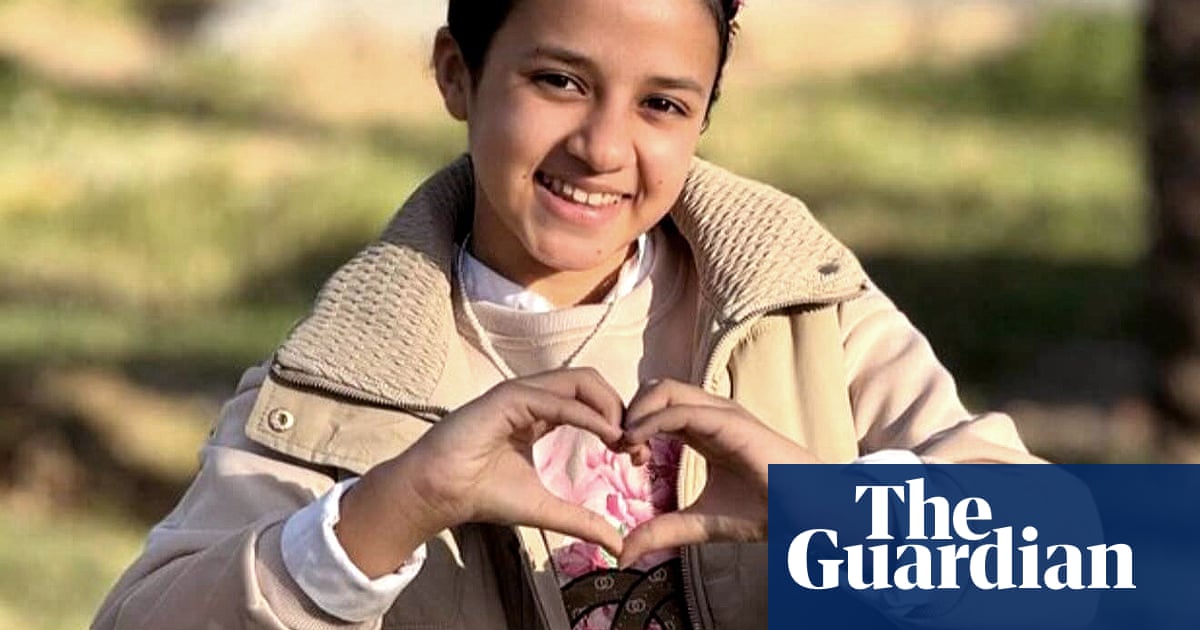Good morning.
Eleven-year-old Yaqeen Hammad, Gaza’s youngest social media influencer, is among thedozens of children killed by Israel in recent strikesas its forces intensify their military offensive across the Palestinian territory.
Known for her bright smile and volunteering efforts, Yaqeen was killed on Friday night after Israeli forces shelled the al-Baraka area of Deir al-Balah in northernGaza, amid intense fighting in the region.
Yaqeen and her older brother, Mohamed Hammad, delivered food, toys and clothing to displaced families, Al Jazeera has reported.
She was alsoGaza’s youngest influencer, offering practical survival tips for daily life under bombardment, such as advice on how to cook with improvised methods when there was no gas. In one social media post, Yaqeen wrote: “I try to bring a bit of joy to the other children so that they can forget the war.”
How has Israel intensified itsattacks on Gaza in recent days?Israeli airstrikes killed at least 52 people on Monday, including 31 in a school turned shelter that was struck as people slept, igniting their belongings, according to local health officials.
What is the latest with Israel’s aid blockade?A US-backed group tasked with delivering supplies said it hadbegun operationson Monday, in a plan endorsed by Israel butrejected by the UN.
How are Israel’s alliesresponding?The UK, France and Canada have called for Israel to end the siege of Gaza, with the British foreign secretary calling Israeli actions “monstrous”. But, as Patrick Wintourexplains in Today in Focus, allies have not yet used all the tools at their disposal.
Donald Trump honored the sacrifices of military veterans in the traditional presidential Memorial Day speech at Arlington national cemetery, but also peppered his address on Monday withpartisan political asideswhile talking up his own plans.
The US president laid a wreath, paid tribute to fallen soldiers and gave accounts of battlefield courage. But he also veered off into rally-style personal boasting and anti-immigration rhetoric. His words followeda Truth Social tiradeon Monday in which he called judges stalling his deportation aims – chiefly because of his ignoring due process – “monsters” and used sweeping disparagements of undocumented immigrants.
Who else is Trump attacking?Meanwhile, the US president also said on Monday he was considering taking a further $3bn of grant money away from Harvard University and giving it to trade schools.
Moscow launched a third consecutive night of extensive drone strikes against Ukraine, killing at least six people, as Trump suggested the Russian leader, Vladimir Putin, had“gone crazy”.
Overnight on Monday, Russia fired a record 355 Shahed drones as well as nine cruise missiles, in an escalating aerial campaign targeting Ukraine’s cities and communities.
The Kremlin sought to downplay Trump’s remarks,attributingthem to “emotional overload”.
Here’s what Trump said on Truth Social:“Something has happened to [Putin]. He has gone absolutely CRAZY! … I’ve always said that he wants ALL of Ukraine, not just a piece of it, and maybe that’s proving to be right, but if he does, it will lead to the downfall of Russia!”
Has Trump indeed always said that Putin wants all of Ukraine?No. The idea that Trump has long been troubled by Putin’s imperial ambitions is an absolutelywarped version of the real history, writes Archie Bland.
A 19-year-old Syrian refugee in Germany has been hailed as a heroafter he pinned down an assailant at Hamburg’s main railway station, helping tohalt an attackin which 18 people were injured.
Liverpool football club’s English Premier League victory parade descended into chaosafter a car collided with pedestrians, leaving nearly 50 peopleinjured.
Ugandan authorities have perpetrated widespread violence against LGBTQ+ peoplesince passing the world’s harshest anti-gay laws, a Human Rights Watchreportsaid.
EU leaders said theywere hoping for a quick trade deal with the USafter Trump announced he wasdelaying50% tariffs for the bloc until 9 July.
Vulnerable nations are facing a $22bn “tidal wave” ofdebt repaymentsas a Chinese lending boom starts to be called in, a Lowy Institute report has said: “Now, and for the rest of this decade, China will be more debt collector than banker to the developing world.”
Anyone can buy a tiny spy camera and hide it in a mirror, fake smoke alarm or public toilet. But why would they? As cases of voyeurism against women soar, victims say it’s too easy to get away with it,writes Anna Moore.
This summer promises to be among the hottest on record across the US, continuing a worsening trend of extreme weather. Only far northern Alaska may escapeunusually warm temperatures, according to the National Oceanic and Atmospheric Administration’s seasonal forecast. Meanwhile, most experts fear the Trump administration’s widespread cuts to staff and reduced funding for federal science,forecasting resourcesanddisaster responseagencies will hamper efforts to keep people safe.
A pebble found in Spain features what is thought to be the world’s oldest complete human fingerprint, made by a Neanderthal on what would appear to be the oldest piece of European portable art. Approximately 43,000 years old, the rock is thought to represent a face with the fingerprint as its nose, experts say. A journal article from a team of Spanish archaeologists, geologists and police forensic experts strengthens the idea Neanderthals werecapable of artistic and symbolic creation.
First Thing is delivered to thousands of inboxes every weekday. If you’re not already signed up,subscribe now.
If you have any questions or comments about any of our newsletters please emailnewsletters@theguardian.com
